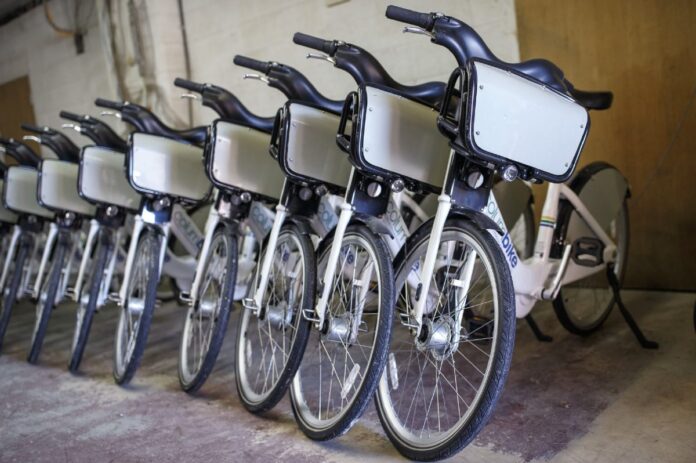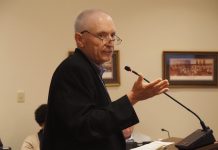
The Columbus Parks Foundation will attempt to repurpose and sell the bicycles and docking stations from the city’s soon-to-be defunct bike-share program.
The foundation announced Thursday that it would shut down the ColumBike program effective Nov. 1 due to declining ridership.
The foundation will work with B-Cycle, which supplied the equipment for the program and several other programs across the country, to identify potential buyers for the program’s eight docking stations and some 42 bicycles, said Chip Orben, Columbus Parks Foundation president.
“We’re going to try to repurpose them,” he said. “We’re going to try to find another bike share program that would be interested in purchasing them.”
Launched by the foundation in May 2016, ColumBike has seen declining ridership since its inception, parks officials said.
Orben said the foundation attempted to reduce costs as much as it could, but “we just didn’t have the ridership to make the program work.”
It costs around $70,000 a year to run the program, organizers said. All of the money that had been invested in the program was raised privately by the park foundation, with no tax dollars utilized, said Mark Jones, director of the Columbus Parks and Recreation Department, in an earlier interview.
Cummins Inc. and Columbus Regional Health were among donors who provided at least $200,000 each to launch ColumBike. Another seven sponsors donated $5,000 to $15,000 each.
Beth Morris, director of community health partnerships at CRH, said the hospital system is “sorry to see the program go.”
“Healthy Communities was excited when the program launched and hoped that more people would use the bikes to run errands or go out to lunch on a bike instead of their car, and that just wasn’t how folks were using the bikes,” she said.
Morris said there likely were some “missed assumptions” when the program was being set up in 2016 about the demand for the service in the community, the number of stations that were needed, among other things.
Morris said the foundation attempted to make it as financially viable as possible, but the program doesn’t “seem to be the right thing for this community at this time.”
Orben said the foundation attempted several business models and promotions to reduce cost and boost ridership, but to no avail.
“We tried the free bike promotion,” he said. “We tried cutting the cost as far as we could. We tried soliciting additional sponsors. I’m not sure the appetite for the program was where it needed to be.”
The ColumBike program was designed to emphasize healthy lifestyles, encouraging local workers to hop on a bike at lunch or for visitors to Columbus to sightsee, said former park foundation director April Williams in an earlier interview. Williams led the effort to establish the program, but has since left the foundation.




